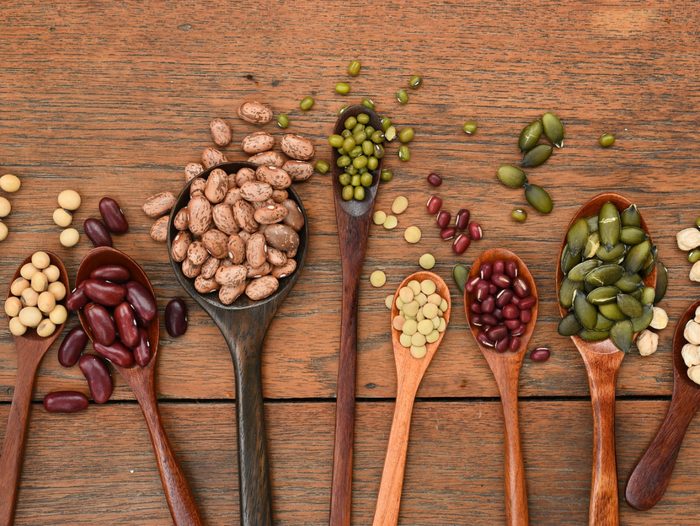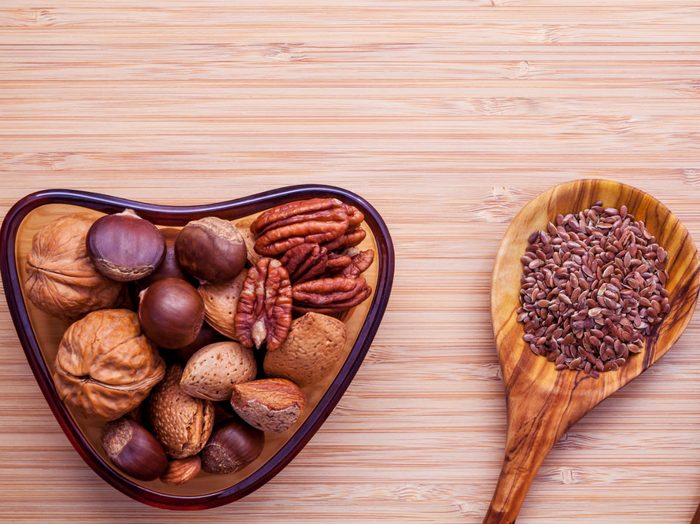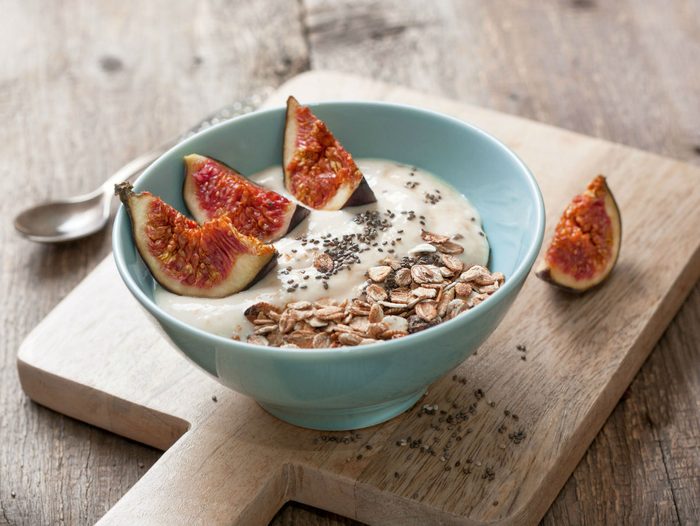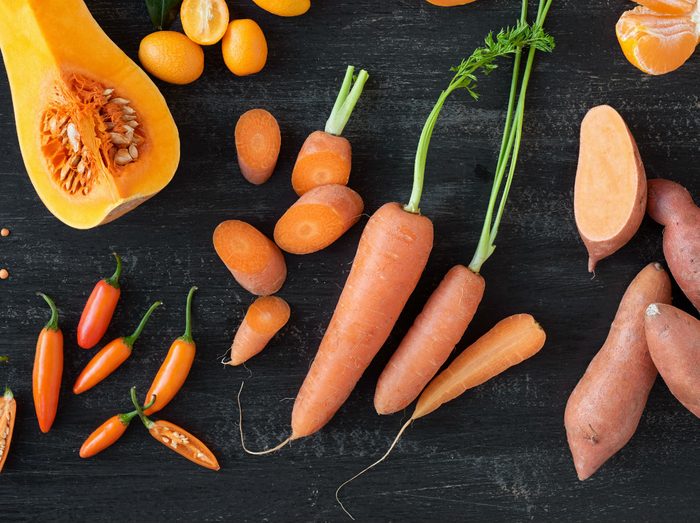
Foods that fight colds, boost your immune system and keep you healthy
Ever notice when you get sick that you can trace it back to feeling run down. Maybe you weren’t getting enough sleep. Over worked. Over stressed. But it also has something to do with your diet.
But it’s not just orange juice and chicken soup.
Foods with nutrients like vitamins A, C and E, Zinc and protein play a role in the maintenance of good immune and overall health. To make sure you’re getting enough of them during cold and flu season, try adding ingredients like bell peppers, butternut squash, nuts, seeds, fish and legumes to your plate.

Bell peppers
Red and yellow bell peppers are loaded with vitamin C and packing even more per gram than an orange. A half-cup serving of red or yellow pepper provides more than the recommended daily intake. Vitamin C is water soluble so our bodies can’t store it – that’s why we need to consume it daily by filling half our plate with fruits and veggies.
Oranges often top our list of vitamin C sources but numerous other fruits and vegetables contain it in more abundance. Snacks like sliced bell peppers, broccoli, kiwi and mango are my top pick for lunch items to help you boost your vitamin C intake.

Legumes
Beans and lentils are good sources of zinc, which contributes to the normal function of the immune system and is a factor in energy metabolism and tissue formation. Try adding lentils to soups and curries, or kidney beans and black beans to chili.
People are often intimidated by dried beans because they need to be soaked and cooked. No-added salt canned or frozen beans can be an easier option to get zinc. Another easy choice are dried green and red lentils – they don’t require soaking, and only take 15 to 20 minutes to cook.

Nuts and seeds
A variety of nuts and seeds contain vitamin E – a dietary antioxidant that helps in the maintenance of good health. Try snacking on almonds. One serving is equivalent to 23 almonds.
To boost your vitamin E, almonds and hazelnuts are a great choice – they are the highest in vitamin E. One serving of almonds provides half of your day’s worth of this nutrient. Nuts also provide many other important nutritional benefits, including healthy fats, protein and fibre, but be mindful of portion size, as they are also high in calories.

Probiotics
Probiotic foods like kefir or probiotic yogurt contain bacteria which may modulate immune function. In addition to the probiotics, yogurt and kefir also provide important nutrients like protein and calcium.
Fermented foods are very trendy, so there are many different options to choose from to add healthy bacteria to your diet. To find out more about the role various probiotics serve in our bodies, speak to a registered dietitian.

Orange vegetables
Vitamin A, found as beta carotene in orange vegetables like sweet potato and butternut squash, have been shown to contribute to the normal function of the immune system.
I tell my clients to boost their vitamin A intake by adding carrots, squash and sweet potato to soups or stews. Another way to get the whole family to eat sweet potatoes is to make homemade baked sweet potato fries.

Lean protein
Protein, found in meats, eggs, seafood (e.g. salmon, tuna and trout), milk products, legumes, and nuts and seeds, helps build and repair body tissues and antibodies.
Aim to fill one-quarter of your plate with a quality protein source at each meal, and opt for more plant-based proteins when possible – they can benefit your health, the environment and your wallet.
Did you like this list of foods that fight colds? Check out 15 Immunity-Boosting Foods That Help Fight The Flu.
Brittany Thomas is a registered dietitian at Loblaws City Market
